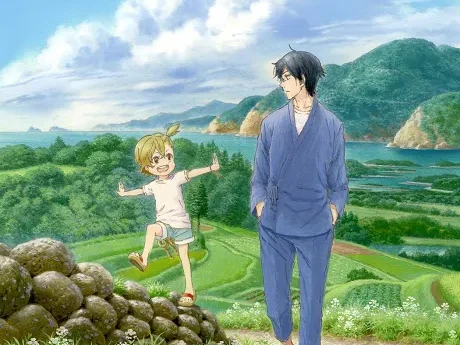
In a world where bosses don’t pay for overtime, children cry on public transport, and subscriptions bill you without warning—everyone needs a little comfort. And some of the best forms of comfort can be animated. Ever seen a Ghibli film? Those are like serotonin in pixels. But you can only watch Ghibli films so many times. Sometimes, you just want to lie on your couch and binge-watch something wholesome. If any of this sounds familiar, then Barakamon is perfect for you. It’s packed with everything you need for a good ol’ serotonin boost—from wholesome, humorous characters and a no-worries plot, to beautifully drawn scenery and poetic life lessons.
The story follows a well-known calligrapher named Seishuu Handa, who’s built his career by strictly following the fundamentals of calligraphy. Handa is a tad sensitive when it comes to his artistic prowess (as most artists are), because he feels it’s his only real merit. This is further explored in the anime’s prequel Handa-kun.
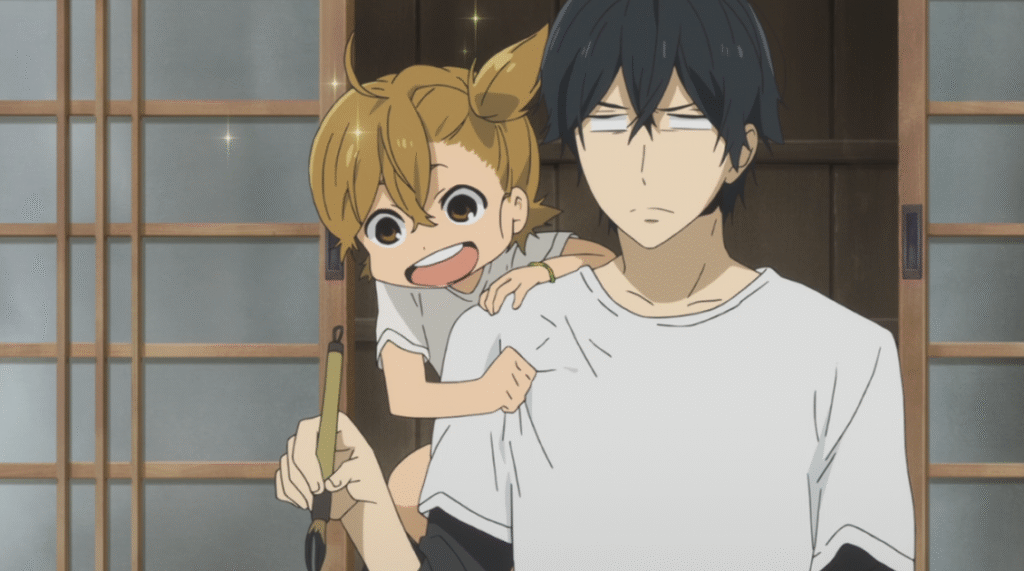
At an exhibition, an older critic comments that Handa’s work feels empty and that if he continues relying solely on the fundamentals, his art will remain stagnant. This enrages Handa, and in a fit of anger, he kicks his shoe at the critic. Naturally, the assault causes a scandal, and the calligraphy community begins speculating that he’s a loose cannon and unruly. Handa’s father, who is also well-known in the community, is equally disappointed and sends his son to live in the Japanese countryside. The rest of the anime follows Handa’s life there—the people he befriends, and the lessons he learns as he reconnects with life away from pressure.
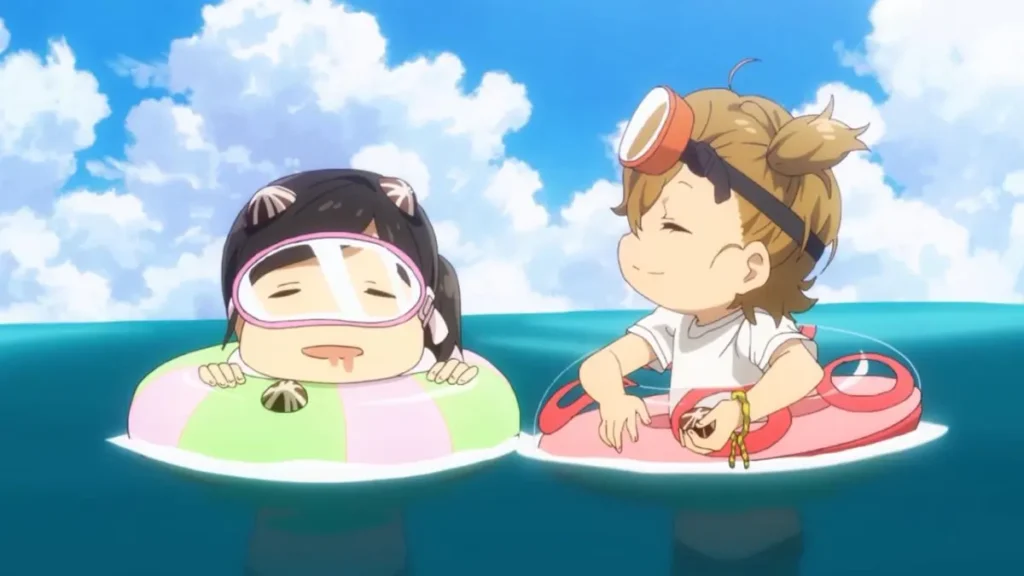
The house Handa moves into previously served as a “secret hideout” for the local kids, and their remnants (chips, toys, posters) are still scattered around. Handa is already upset at being exiled by his father and having to take the long, inconvenient trek to the countryside. He feels everything there is outdated. The internet’s bad, and there’s no easy way to commute to the city. So, when Handa discovers that Naru, a young child, is playing around in his house, he’s naturally frustrated. He tries to kick her out multiple times, but she keeps returning.
She is immensely fascinated by the famous calligrapher from the city and quickly takes to him. Handa, who is childish in nature himself, ends up getting along with her surprisingly well. Slowly—through mischief and meltdowns, mochi tournaments and splattered ink—Naru helps Handa learn to relax and explore his creativity. She is wild and free, the embodiment of childhood tenacity and excitement.
She never judges or criticizes him; rather, she’s almost constantly impressed by him. She does things he holds himself back from—apologizing, trying her best, and accepting defeat. Handa follows her lead through their countryside adventures and slowly relearns how to accept criticism. His fear of failure begins to fade as he mirrors Naru’s unbridled passion. In the countryside—surrounded by flowing nature, a caring community, and the freedom to just be—Handa discovers how to unleash the creativity he had locked behind doors of fear and pressure.
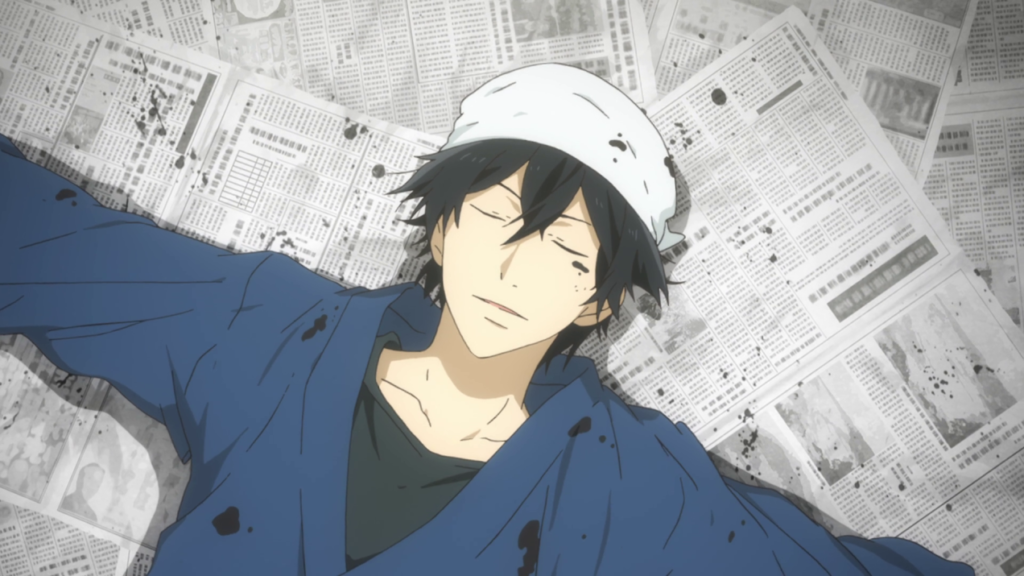
Barakamon delivers a lesson that is easy to forget and important to remember: defining yourself by the opinions of others and the pressures of society will only serve to limit you. If you walk through the world with uncaring confidence, you’ll find you already have everything you need around you.
Comforting, sweet, and poetically entertaining, Barakamon has all the makings of a binge-worthy anime—ready to soothe even the most burdened souls. If you’re feeling disconnected, overworked, or simply longing to lie in a grassy field—go watch Barakamon. You won’t regret it.










Leave a Reply